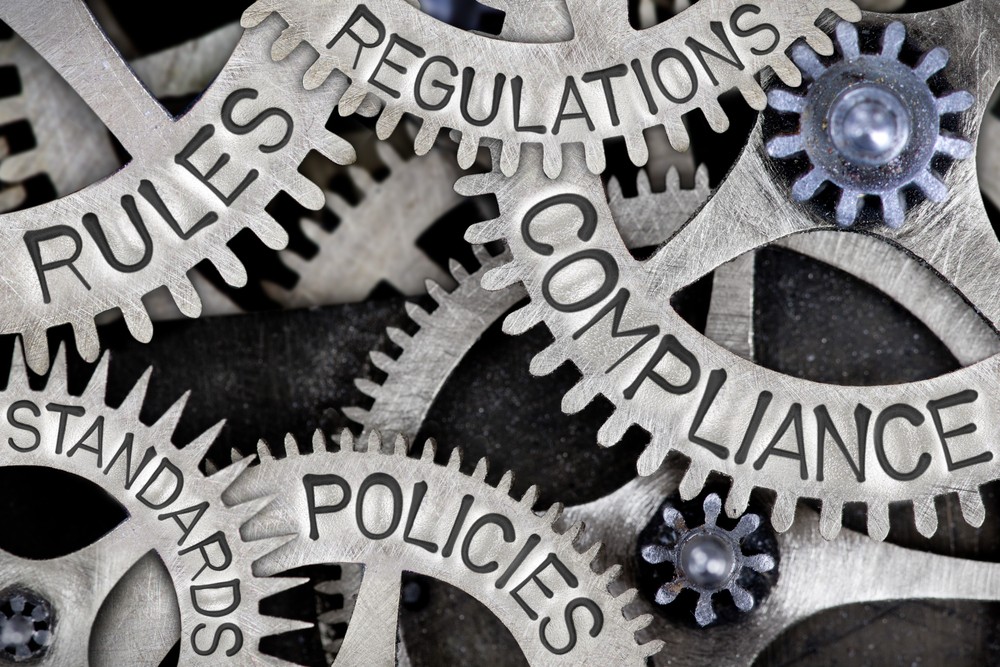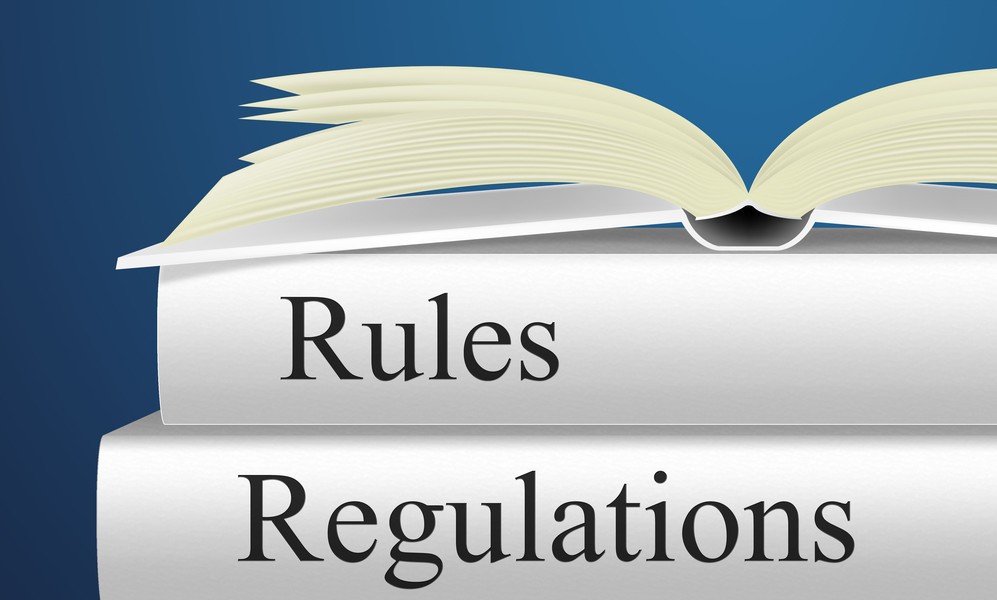On November 25, 2019, the Securities and Exchange Commission amended a complaint to charge four former executives of Outcome Health, a private healthcare advertising company, with fraud in raising nearly half a billion dollars by falsely portraying the company as an overwhelming success to investors, clients, and auditors.
Practical Considerations in Regulation A+ Offerings

WHAT YOU NEED TO KNOW ABOUT REGULATION A OFFERINGS
On March 25, 2015, The Securities and Exchange Commission (the “SEC”) adopted final rules to implement Section 401 of The Jumpstart Our Business Startups (JOBS) Act by expanding Regulation A into two tiers. These changes have had a notable impact on companies raising capital and going public particularly companies quoted by the OTC Markets. As amended Regulation A provides unique benefits not present in traditional securities offerings registered with the SEC on Form S-1 or Form F-1.
OVERVIEW OF REGULATION A
Regulation A consists of two exemptions, each with its own unique requirements. Tier 1 of Regulation A+ provides an exemption for securities offerings of up to $20 million in a 12-month period, while Tier 2 provides an exemption for securities offerings of up to $50 million in a 12-month period. An issuer of $20 million or less of securities in its offering can elect to proceed under either Tier 1 or Tier 2. The requirements of Regulation A+ Tier 1 and Tier 2 are summarized in the chart below. Read More
SEC Adopts New Rules 15Fi-3, 15Fi-4, and 15Fi-5

On Wednesday, December 18, 2019, the SEC adopted new rules 15Fi-3, 15Fi-4, and 15Fi-5, which they describe as risk mitigation techniques for uncleared security-based swaps.
These rules “establish requirements for registered security-based swap dealers and major security-based swap participants (“SBS Entities”) to:
- Periodically reconcile outstanding security-based swaps with counterparties,
- Engage in certain forms of portfolio compression exercises, as appropriate, and
- Execute written trading relationship documentation with each of their counterparties prior to, or contemporaneously with, executing a security-based swap transaction.”
Form S-1 Registration, Filing and Requirements, Form S-1 and Going Public Lawyers
Private companies going public should consider Form S-1 filing requirements when contemplating their securities offering. Private companies seeking to raise capital often file a registration statement on SEC Form S-1 to meet certain requirements of the Financial Industry Regulatory Authority when going public. Upon filing, a Form S-1 is reviewed by the Securities and Exchange Commission, who may render SEC Comments. Once a Form S-1 is declared effective by the SEC, the company becomes subject to SEC reporting requirements.
All companies qualify to use and must comply with Form S-1 registration statement requirements. Unlike a Form 10 registration statement which registers a class of securities, Form S-1 registers specific securities offerings or transactions and it does not become effective until all SEC comments have been resolved. Read More
Silicon Valley IT Administrator Charged in Insider Trading Ring

Janardhan Nellore, a 42 year old IT administrator, has been charged with using confidential earnings information, along with his friends, to trade on a Silicon Valley cloud-computing company that he was working for. The scheme netted him and his friends over $7 million. The company that he was working at is called Palo Alto Networks Inc. This company trades on the New York Stock Exchange and is worth billions of dollars. According to the SEC, Nellore used his “IT credentials and work contacts to obtain highly confidential information about his employer’s quarterly earnings and financial performance. As alleged in the complaint, until he was terminated earlier this year, Nellore traded Palo Alto Networks securities based on the confidential information or tipped his friends, Sivannarayana Barama, Ganapathi Kunadharaju, Saber Hussain, and Prasad Malempati, who also traded.” As Shaun Nichols comically puts it in his article on The Register, “IT isn’t supposed to stand for Insider Trading”.
Accredited Investors and, Regulation D Rule 506(c) – Going Public Attorneys
Rule 506(c) of Regulation D under the Securities Act of 1933, as amended, allows a company to use general solicitation and advertising to raise an unlimited amount of money from accredited investors. Companies can raise the funds themselves or use an intermediary such as an accredited crowdfunding platform. Some companies may choose to crowdfund their own offering without the use of an intermediary by making their own general solicitation and advertising through their corporate website, social media or online advertising or other methods. But there is a catch companies must follow accredited investor verification procedures to ensure that all purchasers qualify for that status. The SEC has suggested several methods for accredited investor verification which can be found at this here.
Senator Elizabeth Warren Hopes to Crack Down on Shell Companies

Elizabeth Warren is currently running for President as a candidate for the Democratic Party. She is also currently a United States Senator from Massachusetts. She was formerly a Professor at Harvard Law School. She was recently a front-runner to win the Democratic primaries, but has seen a weakening of her polling position in the past few weeks. In a poll released this week by Emerson, she was a distant third place at 12%, behind Joe Biden’s 32% and Bernie Sanders’s 25%. That being said, she still has a decent chance, and has made her voice heard regarding her views on Wall Street and her desire to crack down on shady practices by the financial industry.
Telefonaktiebolaget LM Ericsson Charged with FCPA Violations

Swedish multinational corporation Telefonaktiebolaget LM Ericsson, better known as simply “Ericsson”, was charged by the Securities and Exchange Commission (SEC) “with engaging in a large-scale bribery scheme involving the use of sham consultants to secretly funnel money to government officials in multiple countries. The bribes netted Ericsson hundreds of millions in profits.” This scheme was perpetrated in five different countries over the course of almost twenty years as an attempt to create a stronghold for Ericsson’s business. Both the SEC and Department of Justice were involved in the case, as there were also criminal implications for the company and its executives.
FDA Warns that CBD “has the potential to harm you”

The FDA released a statement this week detailing how it has warned fifteen different companies for illegally selling products containing cannibidiol (CBD), and the agency addressed safety concerns it has regarding this newly popular ingredient. The violations include “marketing unapproved new human and animal drugs, selling CBD products as dietary supplements, and adding CBD to human, animal foods”. The FDA is also refusing to label CBD as GRAS (Generally Recognized As Safe).
FINRA Rule 6490 – FINRA Compliance and Rule 6490 Lawyers

Though FINRA’s principal mandate is to regulate broker-dealers, historically it has always exercised some oversight of the over-the-counter markets including all tiers of the OTC Markets. Part of that oversight involves processing corporate action requests from issuers of equity and debt securities not listed on national securities exchanges. Significant changes to FINRA Rule 6490 were enacted in September 2010. Prior to that time, these requests were almost always granted, even when inappropriate or submitted late. Rule 6490 put an end to that: a nominal fee is charged for all requests, and issuers who are later to notify will be fined. In certain specific circumstances processing may be denied altogether.
The actions of which FINRA must be notified are: name changes, stock splits, stock splits, distributions of cash or securities, reinstatement of dormant public shell companies, spin-offs and other actions, and rights and subscription offerings. In the text of the Rule 6490, FINRA notes that the SEC is concerned that “certain parties” may attempt to use corporate action requests to further fraudulent activities.
Rule 10b-17 of the Securities Exchange Act of 1934 (“Exchange Act”), requires issuers to provide FINRA with notice 10 days prior to the record date of a dividend or other distribution in cash or in kind. This often creates significant delays for issuers engaging in corporate actions such as a stock split, change of control or reverse merger transaction. Read More
SEC Invites Outsiders to Submit Proposals for Secondary Market

Seeking to improve the secondary market structure for “thinly traded securities”, the SEC has outsourced the creative process to anyone involved in this market who may have some good ideas. The SEC’s press release “invites exchanges and other market participants to submit innovative proposals designed to improve the secondary market structure for exchange listed equity securities that trade in lower volumes, commonly referred to as “thinly traded securities.”
Regulation A + l Rule 506 l Form S-1 Comparison
Rule 506 and Regulation A provide smaller companies with a flexible alternative to raising capital and going public in connection with direct public offering (DPO) and/or traditional initial public offering (IPO). Recent amendments allow companies that are subject to SEC reporting requirements to use Regulation A+ for their securities offerings. Going public is not mandatory, Regulation A+ can be used by both private companies and companies seeking public company status.
For companies going public on the OTC Markets, Regulation A+ streamlines the process of obtaining the stockholders necessary to establish an active trading market as required by the Financial Industry Regulatory Authority (“FINRA”) for the assignment of a stock trading symbol. Read More
USDA Releases Draft of Interim Final Rule on Hempmaking

On December 20, 2018, the 2018 Farm Bill was signed into law by the federal government. The 2018 Farm Bill “requires USDA to promulgate regulations and guidelines to establish and administer a program for the production of hemp in the United States.” As they write in the draft, the USDA is “issuing this interim final rule to establish the domestic hemp production program and to facilitate the production of hemp.” Further, the rule is supposed to expand production and sales of domestic hemp, benefiting both U.S. producers and consumers. Read More
Regulation A Direct Listing: Regulation A Tier 2 Requirements

An increasing number of small companies seeking public company status are using Tier 2 of Regulation A in their going public transaction. This process is sometimes referred to as a Regulation A direct listing. Regulation A provides many benefits for small companies seeking to raise capital without the costs and expansive disclosures required in direct public offerings (DPO) and initial public offerings (IPO) using traditional Form S-1 or other registration statements under the Securities Act of 1933.
Direct public offerings using Regulation A+ allow resales including by the Company’s management of the Company’s shares to purchasers without the efforts of an underwriter. Going public using Regulation A+ with a direct public offering also eliminates costs and myriad of risks and uncertainties of a reverse merger transaction.
Recent Court Dissent Shows Progress for Marijuana Companies

Currently, although many states have legalized marijuana, it is still illegal to sell the drug under federal law. Because of this, under tax code Section 280E, cannabis companies are not allowed to make any deductions in their filings with the IRS.
IRC Section 280E provides:
“No deduction or credit shall be allowed for any amount paid or incurred during the taxable year in carrying on any trade or business if such trade or business (or the activities which comprise such trade or business) consists of trafficking in controlled substances (within the meaning of schedule I and II of the Controlled Substances Act) which is prohibited by Federal law or the law of any State in which such trade or business is conducted.”
Does Regulation A+ Allow Testing the Waters?
Issuers utilizing Regulation A+ are permitted to “test the waters” with potential purchaser and use solicitation materials both before and after the offering statement is filed, subject to compliance with SEC rules on filing and disclaimers. Using Regulation A+, issuers can advertise the offering opportunity to solicit interests before spending hundreds of thousands of dollars on the actual filing itself, to see if there’s sufficient interest to spend the money to move forward with qualifying a Regulation A Offering.
Testing the waters materials used prior to the filing of the Form 1-A must be filed as an exhibit with the initial filing on Form 1-A. Although the SEC does not pre-review pre-filing advertising, issuer should exercise caution with what they say in offering materials. Solicitation materials are subject to the anti-fraud and other civil liability provisions of the federal securities laws and issuers can be sued for statements in the advertising materials, even if they don’t include the information in the 1-A Offering Circular itself. Read More
Finra Investigates BNP Paribas

On October 24, 2019, the Financial Industry Regulatory Authority (FINRA) announced a settled enforcement action involving BNP Paribas Securities Corp. and BNP Paribas Prime Brokerage, Inc. A lengthy FINRA investigation found that although the firms did a brisk business in penny stocks between February 2013 and March 2017, their anti-money laundering (AML) procedures were woefully lacking, which resulted in a failure to report hundreds of millions of dollars worth of potentially suspicious transactions. BNP agreed to pay a fine of $15 million, and to certify within 90 days that its procedures are “reasonably designed to achieve compliance…”
BNP the parent company may seem at first glance an unlikely player in the penny playground. A French bank with roots in Belgium, its current incarnation resulted from the 2002 merger of Banque Nationale de Paris (BNP) and Banque de Paris et des Pays-Bas S.A. (“Paribas” is derived from “Pays-Bas,” which means the “low countries,” Belgium and the Netherlands.) Today, it’s one of France’s three top international banks, along with Société Générale and Crédit Agricole. Like all multinational financial institutions, BNP has a great many affiliates and subsidiaries, as the Broker Check entry for BNP Securities demonstrates. It appears its own size, and the complexity of its parent’s organization, contributed to the problems FINRA identified.
What is Corporate Hijacking?
Corporate hijackings, also known as corporate identity theft, of public shell companies has been around for more than a decade. Corporate hijackings often involve fraudulent state custodianship and/or receivership proceedings disguised to appear legitimate. It is a growing method used by fraudsters to acquire control of publicly traded shell companies to use in reverse merger transactions involving private companies seeking to go public. Recent SEC cases against hijackers have unraveled a myriad of hijacking schemes varying in sophistication. It is relatively easy to locate information about a public company using EDGAR, OTC Markets filings, Secretary of State websites and corporate filings, company websites, and business and other directories. Using these sources to locate public shell companies for reverse merger transactions, fraudsters are able to determine a public company’s corporate status. Read More
Does Offering Integration Apply in a Regulation A Offering?
 The Regulation A + offering integration rules prevent companies from improperly avoiding the SEC’s registration statement requirements by dividing a single securities offering into multiple securities offerings to take advantage of exemptions that would not be available for the combined offerings. Regulation A+ contains integration safe harbor provisions. Under Rule 251(c), a Regulation A+ offerings will not be integrated with prior offers or sales of securities. Subsequent offers and sales of securities in Regulation A+ offerings will not be integrated with other securities offerings that are: Read More
The Regulation A + offering integration rules prevent companies from improperly avoiding the SEC’s registration statement requirements by dividing a single securities offering into multiple securities offerings to take advantage of exemptions that would not be available for the combined offerings. Regulation A+ contains integration safe harbor provisions. Under Rule 251(c), a Regulation A+ offerings will not be integrated with prior offers or sales of securities. Subsequent offers and sales of securities in Regulation A+ offerings will not be integrated with other securities offerings that are: Read More
Regulation A+ For Publicly Traded Reporting Companies
 Benefits of Regulation A+ Amendments
Benefits of Regulation A+ Amendments
On December 19, 2018, the Securities and Exchange Commission (the “SEC”) adopted amendments to Regulation A informally referred to as Regulation A+. The amendment allows companies that are subject to SEC reporting requirements under Section 13 or 15(d) of the Securities Exchange Act of 1934, as amended (the “Securities Exchange Act”), to conduct securities offerings using Regulation A+. The amendments to Regulation A were mandated by the Economic Growth, Regulatory Relief, and Consumer Protection Act, which became law in May 2018.
As discussed in more detail below, the amendments offer benefits to smaller reporting companies not listed on the New York Stock Exchange (“NYSE”) or NASDAQ and companies subject to SEC reporting requirements that do not qualify to, use Form S-3 or F-3 shelf registration statements. Read More





















Non-Traditional IPO: Direct Listing Process (DLP)
A new type of IPO has gained prevalence recently, as big tech companies such as Slack and Spotify have decided to take their companies public via a Direct Listing Process (DLP), also known as a Direct Placement, or Direct Public Offering (DPO). In an Initial Public Offering, new shares are created, underwritten, and sold to the public. In a Direct Listing Process, on the other hand, no new shares are created and only existing, outstanding shares are sold with no underwriters involved.
Read More